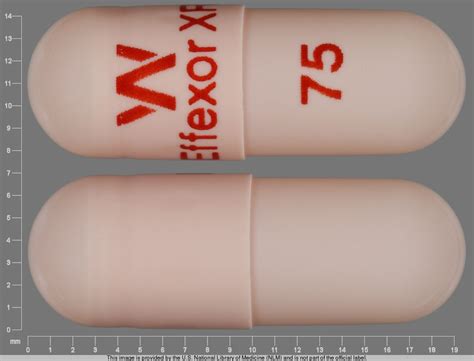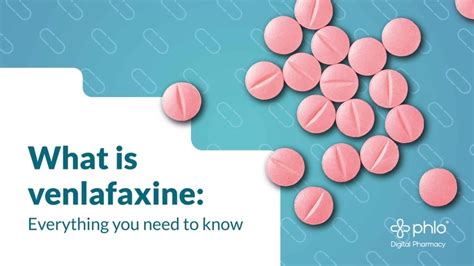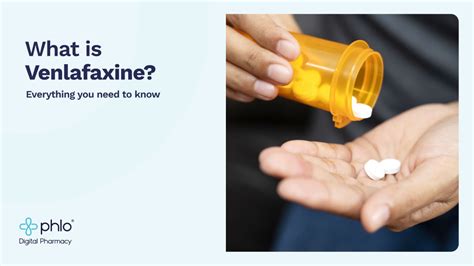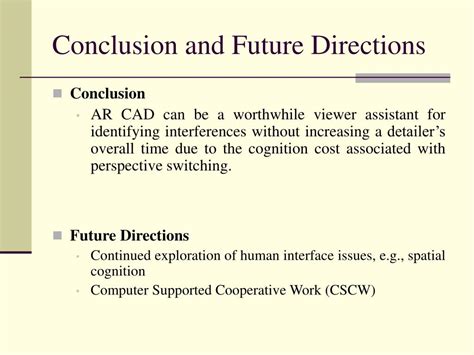Intro
Discover how Venlafaxine treats depression, anxiety, and mood disorders, offering effective mental health solutions with antidepressant medication, serotonin regulation, and mood stabilization benefits.
Depression is a complex and multifaceted mental health disorder that affects millions of people worldwide. It can manifest in various forms, including major depressive disorder, postpartum depression, and seasonal affective disorder, among others. The treatment of depression often involves a combination of psychotherapy, lifestyle changes, and medication. One such medication that has gained prominence in recent years is venlafaxine, a type of antidepressant that belongs to the class of serotonin-norepinephrine reuptake inhibitors (SNRIs). In this article, we will delve into the world of venlafaxine, exploring its uses, benefits, and potential side effects, as well as its role in the treatment of depression.
Depression is a debilitating condition that can affect every aspect of a person's life, from their relationships and work performance to their overall well-being and quality of life. It is characterized by persistent feelings of sadness, hopelessness, and a lack of interest in activities that once brought pleasure. If left untreated, depression can lead to severe consequences, including suicidal thoughts and behaviors. Therefore, it is essential to seek professional help if symptoms persist or worsen over time. Venlafaxine, also known by its brand name Effexor, is a medication that has been widely used to treat depression, as well as other conditions such as anxiety disorders and attention deficit hyperactivity disorder (ADHD).
The importance of treating depression cannot be overstated, as it can have a significant impact on a person's life and the lives of those around them. Depression can affect anyone, regardless of their age, background, or socioeconomic status. It is a condition that requires compassion, understanding, and patience, as well as a comprehensive treatment plan that addresses the physical, emotional, and psychological aspects of the disorder. Venlafaxine is one of several medications that can be used to treat depression, and its effectiveness has been demonstrated in numerous clinical trials and studies.
What is Venlafaxine?

How Does Venlafaxine Work?
The exact mechanism of action of venlafaxine is not fully understood, but it is believed to involve the inhibition of serotonin and norepinephrine reuptake in the brain. This leads to an increase in the levels of these neurotransmitters, which can help to improve mood and reduce symptoms of depression. Venlafaxine may also have an effect on other neurotransmitters, such as dopamine, which plays a role in motivation and pleasure. The medication is typically started at a low dose and gradually increased over time to minimize side effects and optimize efficacy.Benefits of Venlafaxine

Potential Side Effects of Venlafaxine
While venlafaxine can be an effective treatment for depression, it is not without potential side effects. Some common side effects of venlafaxine include: * Nausea and vomiting * Headache * Dizziness * Insomnia * Dry mouth * Constipation * Increased sweating It is essential to discuss any concerns or side effects with a healthcare provider, as they can help to minimize or manage them.How to Take Venlafaxine

Interactions with Other Medications
Venlafaxine can interact with other medications, including: * MAOIs: These medications can increase the risk of serotonin syndrome, a potentially life-threatening condition. * Blood thinners: Venlafaxine can increase the risk of bleeding when taken with blood thinners, such as warfarin. * Other antidepressants: Taking venlafaxine with other antidepressants can increase the risk of side effects and interactions. It is crucial to inform a healthcare provider about any medications, supplements, or herbal products being taken before starting venlafaxine.Conclusion and Future Directions

Final Thoughts
Depression is a complex and multifaceted condition that requires a comprehensive treatment plan. Venlafaxine is one of several medications that can be used to treat depression, and its effectiveness has been demonstrated in numerous clinical trials and studies. By understanding how venlafaxine works, its benefits and potential side effects, and how to take it, individuals can make informed decisions about their treatment and work towards a healthier, happier life.We invite you to share your thoughts and experiences with venlafaxine and depression treatment in the comments below. Your input can help others who may be struggling with similar issues, and your stories can inspire hope and resilience in the face of adversity.
What is venlafaxine used for?
+Venlafaxine is used to treat depression, anxiety disorders, and attention deficit hyperactivity disorder (ADHD).
How long does it take for venlafaxine to work?
+Venlafaxine can start to work within a few weeks of treatment, but it may take several months to reach its full effect.
What are the common side effects of venlafaxine?
+Common side effects of venlafaxine include nausea, headache, dizziness, insomnia, and dry mouth.
Can venlafaxine be taken with other medications?
+Venlafaxine can interact with other medications, including MAOIs, blood thinners, and other antidepressants. It is essential to inform a healthcare provider about any medications being taken before starting venlafaxine.
Is venlafaxine addictive?
+Venlafaxine is not typically considered addictive, but it can cause withdrawal symptoms if stopped abruptly. It is essential to follow the instructions provided by a healthcare provider and to taper off the medication gradually if necessary.
